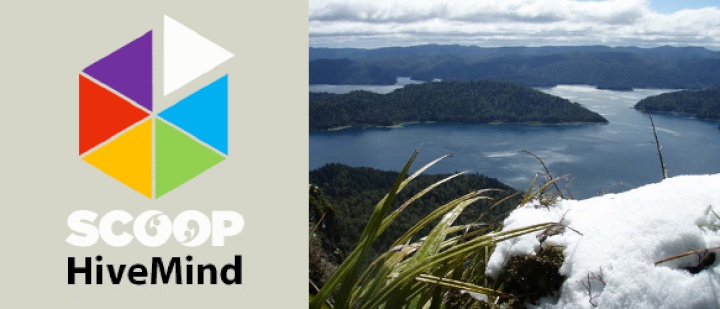
Thankyou to all who contributed to our HiveMind Consultation on 'Water Quality' in July and August 2017. It is clear that there was a consensus amongst the 117 New Zealanders participating in this exercise around a number of important aspects of the water quality debate as described below.
Firstly it is important that a clear consensus among respondents that there is indeed a freshwater management crisis in New Zealand (93%).
A clear majority also believed in the right to public access to water for essential uses (94%) and that more should be done to protect and preserve our valuable freshwater environments and freshwater species from harm.
Respondents agreed that stronger rules and enforcement are needed against those who transgress rules protecting water quality (94%) and that industry cannot be left to self regulate around this important issue. (79%)
A large majority of respondents also believed farmers should not have the right to extract and pollute waterways on their land (90%) and that the government should not be spending millions of taxpayer dollars on subsidising irrigation projects (71%) or encouraging foreign investment in water intensive industry (62%).
Finally there was a clear consensus (76%) among respondents in favour of the recommendations of the Freshwater Rescue Plan which sets out 7 clear steps on their website which the government could implement right now to address water quality.
By The Numbers
117 -
Total number of people who participated in this
exploration over 2 weeks.
3979 - Votes
cast on statements representing different perspectives on
the water quality issue.
80 comments
submitted for inclusion in the conversation by
15 participants.
We cannot definitively claim this survey to constitute a representative sample of all New Zealanders, however the participants came from a variety of backgrounds and had differing views on a number of topics. We believe this exercise gives us a reasonably good snapshot of and insight into the views of the general New Zealand populace on the issues. The points of consensus reached are described in full below.
The Points of Consensus
Across all 117 participants, there was general agreement on the following points. Either a majority (more than 60% of those who voted on the comment) agreed or disagreed on these statements:
#04 “All NZers have the right to access safe and clean freshwater from the tap for drinking, cooking, sanitation and watering plants.”
This statement was agreed on by 94% (86/91 respondents)
#16 “Some freshwater catchment areas are simply too ecologically important or unsuitable for certain water activities to take place.”
This statement was agreed on by 94% (83/88 respondents)
#18. “There should be greater accountability and enforcement of rules against pollution.”
This statement was agreed on by 94% (83/88 respondents)
#0. “There is a freshwater management crisis in New Zealand and something must be done about it.”
This statement was agreed on by 93% (85/91 respondents)
#13. “Protecting all endangered native freshwater flora and fauna is an urgent priority.”
This statement was agreed on by 91% (86/94 respondents)
#07. “Farmers should have the right to use the water flowing through their land to irrigate or to dispose of waste products.”
This statement was disagreed on by 90% (82/91 respondents)
#23. “Industrial users of water are motivated to regulate themselves to a good standard and poor performers will be visible to consumers who can choose other companies.”
This statement was disagreed on by 79% (67/84 respondents)
#41. “Rivers and aquifers have the ability to come back into balance so a precautionary approach is too time consuming and risk averse.”
This statement was disagreed on by 79% (69/87 respondents)
#08. “Subsidising irrigation projects with millions of dollars of taxpayer money is justified as it will benefit the overall economy.”
This statement was disagreed on by 71% (64/89 respondents)
#60 “Foreign companies should be encouraged to invest in & provide local jobs in water-consuming industries & farming.”
This statement was disagreed on by 62% (33/53 respondents)
#70 “The 7 steps of the Freshwater Rescue Plan (by a cross sector alliance of advocacy groups) should be adopted 1. Set strict and enforceable standards. 2. End public irrigation subsidies. 3. Create an Agricultural Transition Fund. 4. Decrease cow numbers. 5. Create polluter pays systems. 6. Support regional councils. 7. Transition to a low-carbon economy https://www.freshwaterrescueplan.org/the-plan/”
This
statement was agreed on by 76% (40/52 respondents)
*This
statement was added in the second week of the HiveMind so
less than 50% of respondents voted on it.
Summary
These findings demonstrate that a majority of New Zealanders not only believe that there is crisis with Freshwater management in our country, but also agree to a significant extent on the factors and policy settings that are causing this crisis. Finally, and most importantly it appears from this consultation that there is a strong consensus among Kiwis on the possible solutions to the problems of water quality in New Zealand. This is important as consensus is the first step to collaborate and deliberate action to solve the issues. It appears that there is agreement across various political party preferences and different places in society on this issue. We can only expect that politicians are also willing to listen to the wishes of the New Zealand public and ensure that sufficient serious attention and resources are put towards these serious issues of water quality.
If you wish to find out more about the policies and opinions of various political parties or candidates on this important issue we invite you to check out the next stage of Scoop’s Opening the Election public engagement Any Questions which has just launched. The public are free to ask questions on this platform around water quality or any other political issues to political candidates and the answers will be transparent and rateable by public users.
We also encourage you to support the work of the Freshwater Rescue Plan, Water Action Initiative NZ and the many of other organisations working to protect freshwater for future generations of New Zealand.
Open Data
The standard
summary of the data from this discussion is available at the
following link: https://pol.is/report/r49xtpmxk2mjmkpyhwuau.
Please bear in mind that this is an AI produced summary of
the data so HiveMind does not guarantee that the trends or
groups selected by the algorithm are correct. The raw data export of this conversation is
also available here and we encourage the public to use
this data for their own study, analysis, interpretation or
visualisation. If you do make use of this data please
acknowledge HiveMind and feel free to send it back to us for
publication on Scoop.
The HiveMind
Team.



 Richard S. Ehrlich: Deadly Border Feud Between Thailand & Cambodia
Richard S. Ehrlich: Deadly Border Feud Between Thailand & Cambodia Gordon Campbell: On Free Speech And Anti-Semitism
Gordon Campbell: On Free Speech And Anti-Semitism Ian Powell: The Disgrace Of The Hospice Care Funding Scandal
Ian Powell: The Disgrace Of The Hospice Care Funding Scandal Binoy Kampmark: Catching Israel Out - Gaza And The Madleen “Selfie” Protest
Binoy Kampmark: Catching Israel Out - Gaza And The Madleen “Selfie” Protest Ramzy Baroud: Gaza's 'Humanitarian' Façade - A Deceptive Ploy Unravels
Ramzy Baroud: Gaza's 'Humanitarian' Façade - A Deceptive Ploy Unravels Keith Rankin: Remembering New Zealand's Missing Tragedy
Keith Rankin: Remembering New Zealand's Missing Tragedy